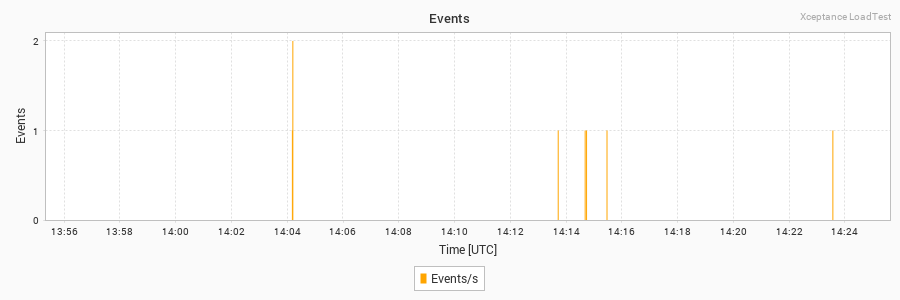Performance Test Report
Events
The tables below show all events that occurred during the load test. Events are used to indicate that the test has encountered a situation that is not an error but too important to ignore or to write to the log only. Events can also be used to report certain conditions during the load test. More...Hide...
Events are soft errors or warnings that don't interrupt the flow of testing. Request-level errors also log an event because it depends on the test configuration if they turn into a hard failure as well.
You can use the XLT API and create your own events to learn about certain conditions, such as an unavailable product that doesn't cause the test to stop but that needs your attention. A few out-of-stock products may be okay while too many of them could affect the test behavior.
The Overview section below lists all events and their respective count in general. The Details section beneath lists and counts all events grouped by test case name, event name, and the particular event message (URLs, for example).
In case of too many events, the XLT report will limit the number of collected data points and report dropped counts instead. You can use the reportgenerator.properties to control these limits. If the report displays "XLT::Dropped events due to bad naming", you might have used the name of an event to communicate dynamic data and XLT limited the data collection to avoid memory problems. You can raise the limit, in case you have a higher number of legit event names.

Overview
| Event | Count | Dropped | Percentage |
|---|---|---|---|
| Totals (1 entry) | 8 | 0 | 100.0% |
| Failed to download resource | 8 | 0 | 100.0% |
Details
| Test Case | Event | Total | Dropped | Event Information | |
|---|---|---|---|---|---|
| Count | Message | ||||
| EchoLatency | Failed to download resource | 8 | 0 | 8 | [503] http://performulator.xceptance.com/echo/latency?time=42 |